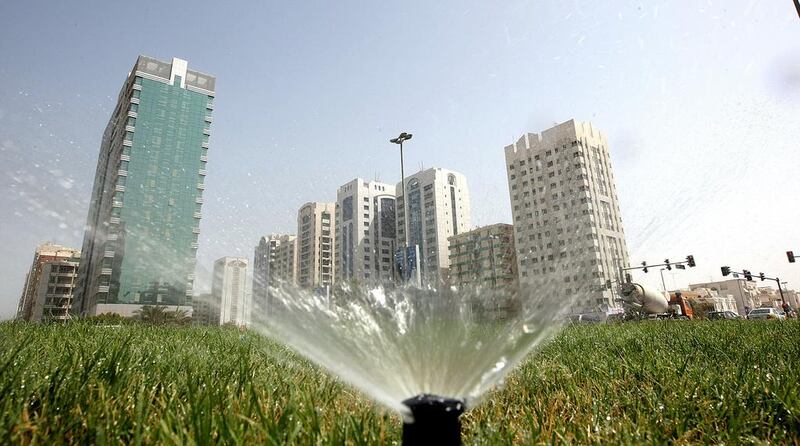SOUTH KOREA // A comprehensive study of water use in Abu Dhabi, which could inform decisions about how to best allocate resources, is to be completed by the end of the year, said an official.
The Environment Agency – Abu Dhabi (EAD) commissioned UAE University, in collaboration with the University of Leeds in Britain, to conduct the study of the emirate’s water resources and how best to use them.
Abu Dhabi, like the rest of the UAE, has few freshwater resources. It also has high per capita use of desalinated water, which is costly to produce and has several negative effects on the environment.
The study would approach the issue by managing demand, rather than focusing solely on expanding supply through the use of desalination, which had been the predominant approach, said Dr Mohammed Al Madfaei, the EAD’s executive director of integrated environmental policy and planning.
“The water budget will be looking at the three types of water – desalinated water, treated water and groundwater. So we are looking for the right mix and the right amounts to give to the different sectors for them to be sustaining their water usage,” he said.
Dr Al Madfaei is among the UAE delegates at the World Water Forum, a five-day conference and exhibition in Daegu and Gyeongbuk, South Korea.
He presented the concept of a water budget at the event.
Abu Dhabi produces a billion cubic metres of desalinated water a year for residential and business use. It also treats 285 million cubic metres of effluent a year, and uses the treated effluent to irrigate public parks and city landscaping.
About 45 per cent of recycled water is unused and discharged at sea, although the Government wants to ensure the full use of recycled water by 2018.
Agriculture in the emirate relies mainly on groundwater, but unrationed use in the past has caused damages to aquifers and urgent changes are required.
In the future, treated effluent would be used to support farming, said Dr Al Madfaei.
EAD and its partners have carried out pilot projects to test the use of recycled water in agriculture.
The Government has put forward plans to build a 35-kilometre pipeline carrying recycled water to Al Samha near Abu Dhabi’s border with Dubai.
“When it comes to the treated water the priority goes to the agriculture sector,” said Dr Al Madfaei, explaining that food security was a key consideration for the country.
A comprehensive view of Abu Dhabi’s water budget is expected to emerge at the end of the year or early next year.
Dr Mohammed Dawoud, water resources manager at EAD, said there was a need to look at water resources strategically.
“The problem now is that there are some people who do not understand the whole water budget as one unit. Everyone is dealing with one angle of the whole issue,” he said.
“Our aim is to produce an integrated programme – including all available resources – in planning their allocation to individual sectors and how they could be managed efficiently.”
The study will also look at the economic impact of allocating water to various areas of demand.
Besides agriculture, district cooling plants and industrial establishments also need water to operate. However, their need for water is small compared with the agricultural sector, according to Dr Dawoud.
For example, Abu Dhabi’s district cooling industry “only needs about 10 million gallons a day”, he said.
Dr Al Madfaei said decisions on the water budget would be made in consultation with other Government departments such as the Abu Dhabi Water and Electricity Authority, the Regulation and Supervision Bureau, the municipalities and the Abu Dhabi Food Control Authority.
“We will be discussing with them the concept, we will be putting the modelling and what can be done. Once that is ready, we will be communicating it to everybody,” he said.
The approach will also need to be reviewed by the Executive Council.
“We need to go to the Government and see if they like that approach,” said Dr Al Madfaei.
“But I hope that it will be an innovative approach that will be driving efficiency and innovation when it comes to water reduction.”
vtodorova@thenational.ae





